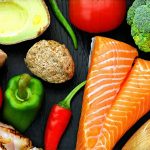Navigating the world of food can be tricky enough without adding cookware and cooking methods into the mix. For many individuals, particularly those managing digestive sensitivities like IBS, Crohn’s disease, GERD, or even simple bloating, these seemingly minor details can significantly impact comfort and well-being. It’s not just what you eat, but how it’s prepared and in what that matters. Often overlooked, the materials our cookware is made from, and the ways we transform raw ingredients into meals, play a crucial role in how easily – or uneasily – our bodies digest food. This article aims to explore these connections, offering practical guidance on choosing both cookware and cooking methods to support optimal digestive health, allowing you to enjoy nourishing meals without triggering unwanted symptoms.
Digestive systems are wonderfully complex, and individual tolerances vary greatly. What works for one person may not work for another. Therefore, the information provided here is meant as a starting point for experimentation and mindful observation of your own body’s responses. Understanding that there’s no “one-size-fits-all” solution is essential. We will focus on principles that generally promote easier digestion, minimizing potential irritants and maximizing nutrient absorption – all through thoughtful choices in the kitchen. Remember to consult with a registered dietitian or healthcare professional for personalized advice tailored to your specific digestive needs. Perhaps starting with balanced meals can help you understand your body better.
Cookware Materials & Digestive Sensitivity
The materials our cookware is made from can subtly influence food’s composition and potentially interact with its contents, affecting digestion. Some materials are inherently more inert than others, posing less risk of unwanted reactions or leaching into foods. Non-stick coatings, while convenient, have historically raised concerns – though advancements in technology have reduced some risks.
Stainless steel is generally considered a safe and reliable option for most individuals. It’s durable, doesn’t react with food, and doesn’t leach harmful chemicals when heated properly. However, cheaper stainless steel grades might contain nickel, which can be problematic for those with nickel sensitivities. Look for high-quality, 18/8 or 18/10 stainless steel – these indicate the amount of chromium and nickel content (18% chromium, 8% or 10% nickel) and are generally well-tolerated. Cast iron, while fantastic for retaining heat and adding a small amount of iron to food, can be reactive for some individuals, especially those with sensitivities to iron or who struggle with constipation. Proper seasoning is crucial to prevent reactivity.
Aluminum cookware isn’t ideal, as it’s a reactive metal that can leach into foods, particularly acidic ones like tomatoes or citrus fruits. Anodized aluminum is better as the anodization process creates a non-reactive surface, but still might not be the best choice for those highly sensitive. Similarly, copper cookware, though beautiful and excellent at heat conduction, reacts with food and requires careful maintenance to avoid leaching. Nonstick coatings (PTFE/PFOA) have evolved; newer formulations are generally considered safer than older ones containing PFOA, but overheating non-stick cookware can still release potentially harmful fumes. Consider ceramic nonstick as an alternative – it’s often marketed as a healthier option, but its durability and long-term safety are still areas of ongoing research. Before you start cooking, ensure you prepare for any potential digestive tests to get a baseline understanding of your body.
Cooking Methods & Digestive Ease
The method used to cook food impacts its digestibility just as much as the cookware itself. Some methods inherently make food easier to break down, while others can increase digestive burden or create irritating compounds. Generally, gentler cooking methods that preserve nutrients and minimize harshness are preferred for those with sensitive digestion.
Steaming is an excellent choice. It preserves vitamins and minerals without adding any fats, making it ideal for vegetables and fish. Similarly, poaching – gently simmering food in liquid – retains moisture and creates a soft texture that’s easy to digest. Slow cooking, whether in a slow cooker or on the stovetop, breaks down tough fibers and proteins, making foods like beans and lentils more digestible. Conversely, deep frying introduces excessive fat and can be difficult for many digestive systems to handle.
Grilling and roasting at high temperatures can create advanced glycation end products (AGEs), which some research suggests may contribute to inflammation in the gut. While avoiding AGEs entirely is unrealistic, minimizing their formation through lower cooking temperatures and shorter cooking times is beneficial. When frying, consider using healthier oils with a higher smoke point – avocado oil or coconut oil are good options – and avoid overheating them. Finally, raw food diets can be challenging for some individuals as certain foods require cooking to break down effectively. Balancing raw and cooked foods based on individual tolerance is key. If you’re prone to indigestion, explore cooking methods that are easier on your system.
Optimizing Vegetable Digestibility
Vegetables are incredibly nourishing, but their fibrous nature can sometimes cause bloating or discomfort. There are several ways to make vegetables more digestible. – Firstly, thorough chewing breaks down the cell walls, initiating digestion before food even reaches the stomach. – Secondly, cooking methods significantly impact digestibility; steaming, boiling, or sautéing soften fibers and reduce gas production. – Thirdly, combining vegetables with healthy fats aids in nutrient absorption and can ease digestion.
Consider peeling certain vegetables like carrots and cucumbers if you find the skin difficult to digest. Sprouting seeds and legumes also increases their digestibility and nutritional value. Fermenting vegetables – making sauerkraut or kimchi – introduces beneficial probiotics that aid in gut health and break down complex carbohydrates, further easing digestion. Incorporating digestive spices like ginger, fennel, or cardamom into your vegetable dishes can also help reduce bloating and gas. You may need to adjust recipes for better tolerance when adding these spices.
Soothing Protein Digestion
Protein is essential for repair and maintenance, but incomplete protein digestion can lead to discomfort. – Proper chewing is paramount for breaking down proteins. – Gentle cooking methods are preferable; slow cooking tenderizes tough cuts of meat and makes them easier to digest. – Pairing protein with easily digestible carbohydrates – sweet potatoes or quinoa – provides the necessary enzymes for efficient breakdown.
Avoid combining large amounts of protein with high-fat foods, as this can slow digestion and increase bloating. Consider smaller, more frequent protein servings throughout the day rather than one large meal. Marinating meat in acidic marinades (lemon juice, vinegar) before cooking helps break down proteins and tenderize the meat. If you struggle with digesting red meat, explore alternative protein sources like fish, poultry, or plant-based options such as lentils or tofu. Taking rest days can also help your body recover and process proteins effectively.
The Role of Fats & Oils
Fats are vital for nutrient absorption and overall health, but choosing the right fats and using them appropriately is crucial. – Prioritize healthy fats like avocado oil, olive oil, coconut oil, and flaxseed oil. – Avoid trans fats found in processed foods, as they’re linked to inflammation and digestive issues. – Moderation is key; excessive fat intake can overwhelm the digestive system.
Cooking oils should be used at temperatures below their smoke point to prevent oxidation and formation of harmful compounds. Consider incorporating fermented dairy products like yogurt or kefir – rich in probiotics – which aid in fat digestion. If you struggle with digesting fats, consider reducing your overall fat intake and focusing on smaller portions of healthy fats throughout the day. Remember that fat malabsorption can lead to deficiencies, so professional guidance is crucial if you suspect this is an issue. Also remember that dental health plays a role in how well you break down fats and other nutrients. Finally, consider taking safe supplements to support your liver health as it processes these fats.


















